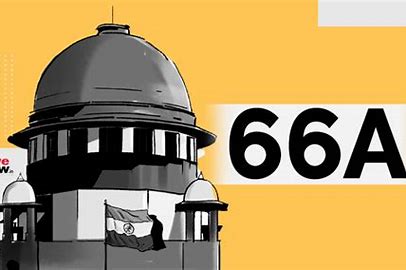SC notice to Centre, West Bengal over IT Act

Tags: section 66A, free speech, article 19, it act
Related Issue: Section 66A of the IT act in violation of Freedom of speech and expression under article 19 of the Indian Constitution
The Supreme Court on Friday sought response from the Centre and the West Bengal government over a PIL challenging a provision in the Information Technology Act that provides for a maximum three-year jail term for posting offensive online speeches or writings.
A Bench led by Justice R M Lodha issued notices to the state government and Ministries of Home Affairs, Law and Justice and Communications and Information Technology on a petition filed by the NGO, Peoples’ Union for Civil Liberties (PUCL).
The West Bengal government has been asked to respond to the allegation of the “illegal arrest” of Jadavpur University professor Ambikesh Mahapatra and his neighbor in April last year for allegedly circulating defamatory emails directed at Chief Minister Mamata Banerjee. The duo was later released on bail.
The court, however, turned down a plea of advocate Sanjay Parikh to issue a notice for immediate stay on the operation of the impugned rule. The Bench said that it would consider the request only after receiving replies from all the parties.
The court also directed for tagging the PUCL petition with a bunch of other PILs that have challenged various provisions of the IT Act. Besides Section 66A of the Act that gives punitive power to police, the PUCL has challenged certain provisions of Information Technology (Procedure and Safeguards for Blocking for Access of Information by Public) Rules and Information Technology (Intermediaries Guidelines) Rules that deal with the blocking of websites.
The petition also sought a direction from the court for the formation of a committee of experts in law and IT to review fresh complaints under Section 66A of the of the IT Act. It said that no FIR be registered till the court decides the PIL and added that the reasons for blocking the websites be displayed by the designated authorities during the pendency of the petition. The petition termed the provisions as being violative of Articles 14 (right to equality), 19 (freedom of speech and expression) and 21 (right to life) of the Constitution.
Courtesy: Express News Service, New Delhi
Sanjay Parikh, Advocate who represented the PUCL case before the court, has sent the following note. For information, it is being published here. – Ed.
NOTE
Writ Petition filed by the People’s Union for Civil Liberties (PUCL) challenging Section 66A of the Information Technology Act, 2000, The Information Technology (Procedure and safeguard for Blocking for Access of Information by Public) Rules 2009, and The Information Technology (Intermediary Guidelines) Rules 2011, came up for hearing before the Supreme Court (Justice RM Lodha and Justice S.K. Singh). The Court was pleased to issue notice in the writ petition which was argued by Mr. Sanjay Parikh along with Ms. Karuna Nundy, Advocates, appearing for PUCL.
In the writ petition, it is, inter alia, stated that the provisions contained in Section 66A of the Information Technology Act, 2000 are vague and undefined, though the offence is cognizable and provides for a maximum of three years imprisonment. It is submitted in the petition that Section 66A violates freedom of speech under Article 19(1)(a) of the Constitution and that the restrictions imposed under Section 66A do not fall within permissible categories of Article 19(2). The petitioner has also said that blocking of information is done arbitrarily, without notice to the author of the content and that while exercising powers in emergency, no post-decisional hearing is provided. Not only that, but no information is also provided at the site, which is blocked, even reasons are not given, for allowing the public to raise their objections. The Intermediary Rules are, as they exist, effectively result in censorship by private online service providers. The petitioner – PUCL, has given several instances to show how the provisions have been misused, including in the case of Aseem Trivedi- a cartoonist, Prof. Ambikesh Mahapatra, Mr. Subrata Sengupta and others.